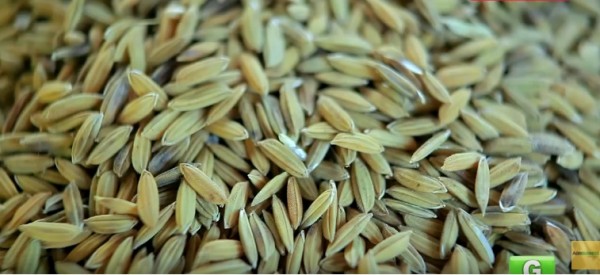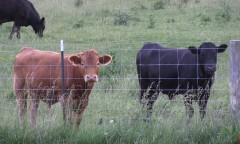By Prei Dy, | February 05, 2017

Chinese scientists have developed a disease- and insect-resistant rice using genome-wide breeding chip technology. (YouTube)
Chinese scientists have developed a new variety of rice, which is resistant to disease and insect, using a genome-wide breeding chip technology. The first-of-its-kind rice will be cultivated in China's Hellongjiang Province starting in April, China National Seed Group announced on Sunday.
Like Us on Facebook
"The use of pesticides and chemical fertilizers have caused environmental and food safety problems," Zhang Qifa from the Chinese Academy of Sciences said. "But the genome-wide chip helps develop a new variety to cope with the problem."
Researchers from China National Seed Group, Peking University, and Huazhong Agricultural University selected over 40,000 useful gene makers from countless gene data to come up with the world's first genome-wide breeding chip in May 2012.
"It helped to improve the disease and insects resistance of the current rice variety," Zhou Fasong, China National Seed Group's lead researcher, said, adding that they have been trying to identify the genes over the past five years and have just discovered the new breed.
Meanwhile, Chinese scientists have also produced a cloned cattle with increased resistance to bovine tuberculosis using the CRISPR/Cas9 technology. Researchers claim that they have successfully altered the genetic code of the cattle involved to combat the infection through gene-editing technology.
"The resulting transgenic cattle exhibited increased resistance to M. bovis infection," researchers from the College of Veterinary Medicine, Northwest A&F University in Shaanxi, China, said. "Our study provides an avenue to develop the CRISPR/Cas9 system for agricultural applications."
Eleven of the 12 calves survived after over three months and have not exhibited any adverse effects, suggesting that the CRISP/Cas9 system is likely better for incorporating genes into mammals compared with other CRISPR technology versions.
"Our work has led to the discovery of a useful position in the bovine genome that can be targeted with this gene-editing technology to successfully insert new genes that can benefit agricultural livestock," Yong Zhang, one of the authors, said.
-
Use of Coronavirus Pandemic Drones Raises Privacy Concerns: Drones Spread Fear, Local Officials Say

-
Coronavirus Hampers The Delivery Of Lockheed Martin F-35 Stealth Fighters For 2020

-
Instagram Speeds Up Plans to Add Account Memorialization Feature Due to COVID-19 Deaths

-
NASA: Perseverance Plans to Bring 'Mars Rock' to Earth in 2031

-
600 Dead And 3,000 In The Hospital as Iranians Believed Drinking High-Concentrations of Alcohol Can Cure The Coronavirus

-
600 Dead And 3,000 In The Hospital as Iranians Believed Drinking High-Concentrations of Alcohol Can Cure The Coronavirus

-
COVID-19: Doctors, Nurses Use Virtual Reality to Learn New Skills in Treating Coronavirus Patients










